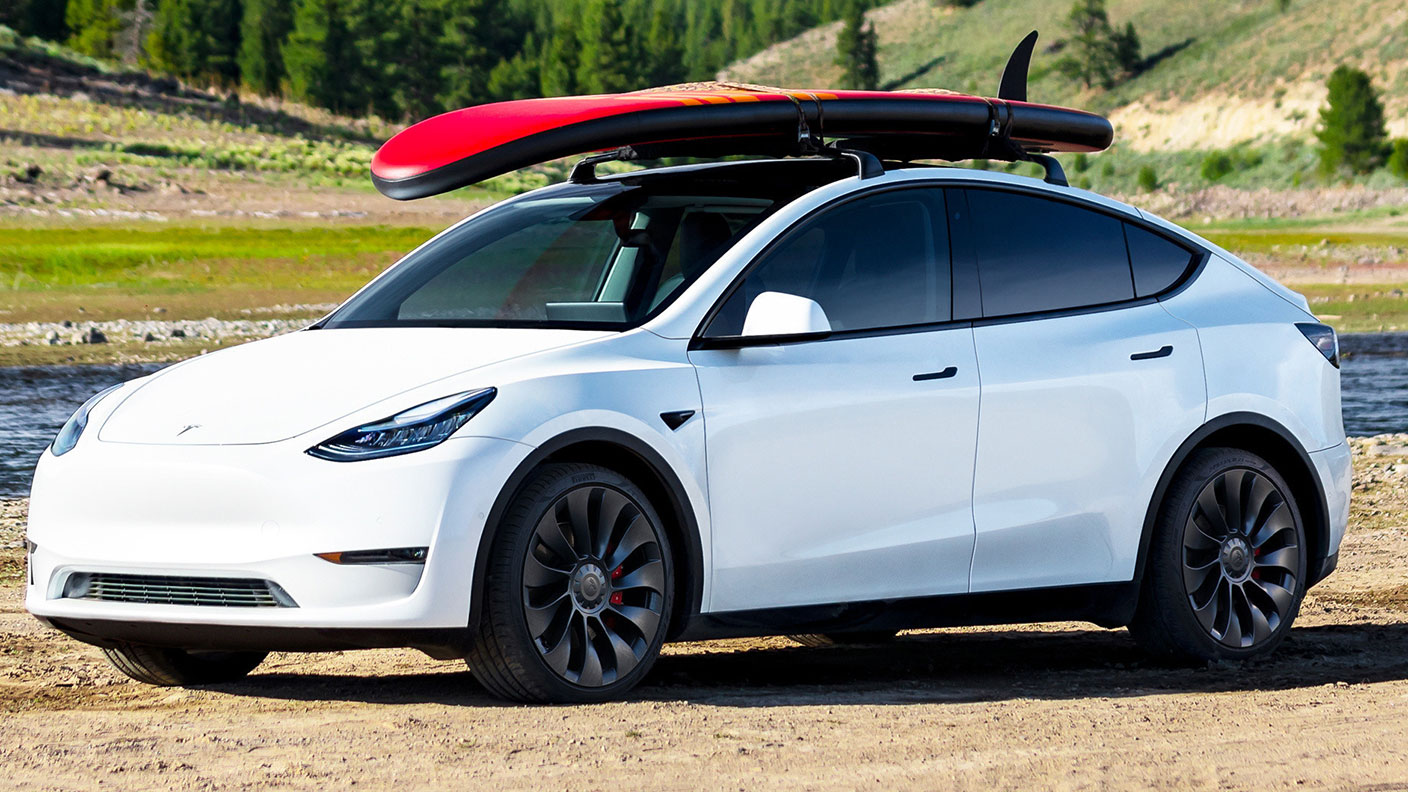Get the latest financial news, insights and expert analysis from our award-winning MoneyWeek team, to help you understand what really matters when it comes to your finances.
You are now subscribed
Your newsletter sign-up was successful
Want to add more newsletters?

Twice daily
MoneyWeek
Get the latest financial news, insights and expert analysis from our award-winning MoneyWeek team, to help you understand what really matters when it comes to your finances.

Four times a week
Look After My Bills
Sign up to our free money-saving newsletter, filled with the latest news and expert advice to help you find the best tips and deals for managing your bills. Start saving today!

At the start of last month Elon Musk, founder and CEO of electric-car company Tesla, sent one of his vehicles into space, attached to a rocket launched by his other firm, SpaceX. For a reported investment of a mere $500m, he has succeeded in "securing his place in auto marketing history", says David Griner in AdWeek. Other people were less impressed. All Musk has achieved is to make the human race look ridiculous, says Jenny Lee in the Financial Times. "When aliens discover a sexy red sports car off-roading through the cosmos they are going to think Earth is having a mid-life crisis." And as if sending a car up there is not a "fruity" enough idea, he's also planning on building a city from scratch. On Mars. His plans are just silly. "It is romantic to build utopias; it is moral to fix what is broken. We don't need billionaires. We need their billions back. For the cities that already exist. For the people in them. For goodness' sake."
Some might take issue with Lee's argument. After all, it's Musk's own cash, and if he'd like to "spend it making big explosions and sending his convertible on a million-mile space voyage, that's his prerogative", as Nathan Robinson puts it in The Guardian. But this overlooks the fact that "Musk's empire is fuelled by billions of dollars in government subsidies". As well as Musk benefiting from grants, tax breaks, discounted loans and environmental credits, consumers are granted rebates for buying his products. "The average household income of a Tesla purchaser is in the hundreds of thousands, yet the American government pays people $7,500 to buy Tesla products through tax credits, and many states offertheir own cash handouts." Thanks to this support, "what he chooses to do with that money is very much our business Silly and fun things are important. But some of them are an indefensible waste of resources."
A Mayflower moment
Not everyone is so downbeat. Musk and his rivals may seem "like Bond villains hell bent on an ego trip of intergalactic proportions", says Sarah Cruddas in The Daily Telegraph. But while their plans to "settle human colonies on Mars and mine the Asteroid Belt" may seem like daydreams, they are actually more an astute recognition that "the exploration of space is the most significant thing we will do as a species". Already, "our quest for the stars has transformed our understanding of our planet, advancing medical science, environmental studies and technology". If the Apollo moon landings could be compared to Columbus reaching the Americas, perhaps this is the "Mayflower moment for space".
MoneyWeek
Subscribe to MoneyWeek today and get your first six magazine issues absolutely FREE

Sign up to Money Morning
Don't miss the latest investment and personal finances news, market analysis, plus money-saving tips with our free twice-daily newsletter
Don't miss the latest investment and personal finances news, market analysis, plus money-saving tips with our free twice-daily newsletter
Indeed, but perhaps not in the sense Cruddas meant. If there is already life on Mars, it's now at risk of being contaminated by terrestrial bacteria, says Jay Melosh of Purdue University, quoted in Fortune. US space agency Nasa sterilises craft that will land on other planets to ensure our native bacteria don't interact with organisms that might exist elsewhere, but Musk's car was not treated, says Melosh. Still, that might not be bad news for anyone worrying about a War of the Worlds ending to this story. After such a pre-emptive strike, the chances of anything coming from Mars may now be considerably more than a million to one...
Get the latest financial news, insights and expert analysis from our award-winning MoneyWeek team, to help you understand what really matters when it comes to your finances.
MoneyWeek is written by a team of experienced and award-winning journalists, plus expert columnists. As well as daily digital news and features, MoneyWeek also publishes a weekly magazine, covering investing and personal finance. From share tips, pensions, gold to practical investment tips - we provide a round-up to help you make money and keep it.
-
 Should you buy an active ETF?
Should you buy an active ETF?ETFs are often mischaracterised as passive products, but they can be a convenient way to add active management to your portfolio
-
 Power up your pension before 5 April – easy ways to save before the tax year end
Power up your pension before 5 April – easy ways to save before the tax year endWith the end of the tax year looming, pension savers currently have a window to review and maximise what’s going into their retirement funds – we look at how
-
 Everrati Series IIA: an electric Land Rover for the new age
Everrati Series IIA: an electric Land Rover for the new ageReviews In the Everrati Series IIA, the Land Rover, Britain’s favourite workhorse, now has an eco-friendly stablemate.
-
 Model Y: Tesla has nailed it once again
Model Y: Tesla has nailed it once againReviews The electric carmaker’s new SUV crossover, the Model Y, sets the benchmark in the sector.

